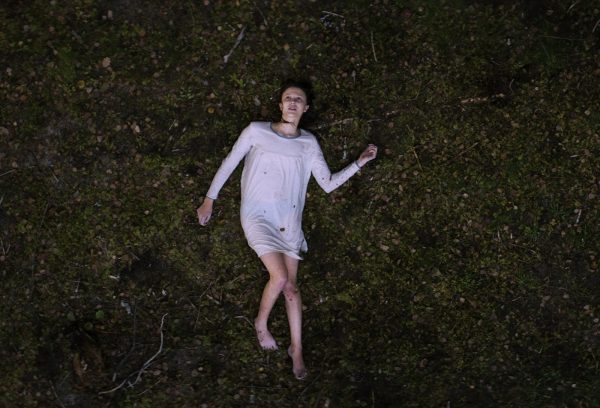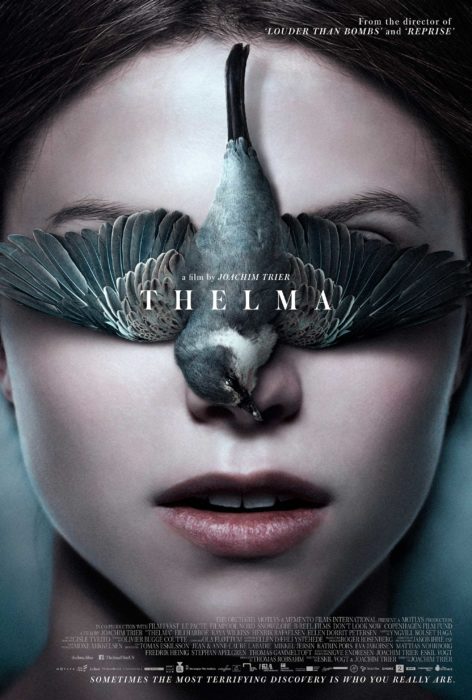
‘THELMA’ Review
Supernatural films featuring Telekinesis were popular in the late 70’s and early 80’s, thanks in large part to directors like Brian de Palma and writer Stephen King. Stranger Things brings some of these sensibilities back into modern media storytelling but moreso pays homage to what it is making callbacks to than actually telling a familiar subject matter for fans of Carrie, The Fury and Firestarter in a different manner. Thelma, directed by Joachim Trier and written by Trier and Eskil Vogt, tells it in a different way via questioning of religion and faith in addition to sexuality from a woman who is introduced to a new environment.
Thelma (Eili Harboe) is a woman who is attending college in the city, away from her country upbringing, and is discovering her individuality. However, she experiences a epileptic seizure that seems to plunge her deeper in social isolation. Anja (Kaya Wilkins), a girl who was sitting next to Thelma, befriends Thelma after the traumatic episode in what seemingly starts out as an act of kindness but turns out to be something more.
[AdSense-A]
The interesting thing about Thelma is that it doesn’t really play its genre card heavily like any of the previously mentioned titles in this review. Instead, it is more geared as a coming-of-age film with Thelma not only trying to make friends but is also faced with her religion being tested in addition to, but mainly because of, her sexual tendencies. Of course, when Thelma is experiencing these intense emotions is when her seizures occur. Where it gets interesting is the reverse-engineering of this approach in that the seizures are the result of her psychokinetic abilities. Thelma can make anything happen that she wants to happen. Much like her exploration into society in the city, her powers are unharnessed and are out of control since Thelma doesn’t know what is happening.
There are plenty of themes in the film that prove to be a question of religion and identity but even more revealing is Trier’s statement on Thelma’s childhood and the parental sheltering that came from it – in this case, the parents were being controlling because they simply didn’t know how to control Thelma’s ability. It is in Thelma‘s opening sequence and through flashbacks on why we learn why her parents seem overbearing and why Thelma, a strong but sheltered character, is the way she is. It is also through these sequences where Thelma touches the horror genre in a clever and innovative way.
Trier and Vogt familiarize the viewer with Thelma and her relationship to her parents, after an unsettling opening sequence, by giving them the answer and using the flashbacks as more of a riddle that you have to solve. Imagine Memento and you might not be too far off. Without giving anything away, the first flashback is one that puts the viewer on edge because we already know the answer to a question, we just do not know how it all played out. By the second flashback, the question will still linger but it does get answered, tragically.
The only time Thelma gets into the extraordinary is towards the end with Thelma’s solution to a main character. Trier composes this scene in such away that it is not as extravagant as it could have been but it is composed and executed in such a way that is pretty unforgettable. Harboe is fantastic as Thelma and I hope to see more challenging roles given to her.


